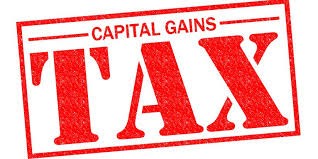Worst kept secret confirmed: Tax Working Group recommend Capital Gains Tax

The Tax Working Group (TWG) has today, Thursday 21 February 2019, released their final report which has confirmed close to 100 specific
recommendations across New Zealand’s tax system including a broad Capital Gains Tax.
Chaired by Sir Michael Cullen, the TWG recommendations are consistent with the earlier released draft report but provide more detail and a
number of different options as to how the Government could implement the new tax. The Government’s next step is to consider the report and
decide which recommendations they will adopt. Then the political horse trading begins to get legislation in place prior to the next election
to take effect from 1 April 2021.
Capital Gains Tax – summary of recommendations
- Will apply to all land and improvements (except the family home), shares, intangible property (intellectual property and goodwill) and business assets.
- Personal use assets (e.g. cars, boats, art, jewellery, personal household items) to be exempt.
- Only gains and losses that arise after implementation (valuation date) will be taxed.
- Taxpayers will have five years to determine the market value on valuation date. If this is not completed a default rate will apply.
- Tax will only be imposed on sale in most cases.
- Rollover relief will be available for certain life events (e.g. death and relationship separations), business reorganisations and small business reinvestments (turnover less than $5m).
- All capital gains will be taxed within the current tax system at each taxpayer’s marginal rate – likely to be 33% for most individuals or 28% for companies (i.e. not a separate tax regime).
- There will be no discounts or adjustment for inflation.
- Capital losses should generally be able to be offset against other income.
- House on farms and surrounding land up to 4500 square metres exempt, calculated as a percentage of total farm value.
- Capital Gains Tax estimated to raise $8.3b over five years with these funds being redistributed.
Other recommendations
- Significant scope for the tax system to play a greater role in sustaining an enhancing New Zealand’s natural capital.
- Expand coverage and rate of Waste Disposal Levy, expand the Emissions Trading Scheme (ETS) and use congestion charging.
- Consider restoring depreciation on buildings if Capital Gains Tax introduced.
- Change to loss continuity rules to support innovative start-up firms and reforming the tax treatment of black-hole expenditure.
- A number of compliance savings measures including increasing the threshold for provisional tax to $5k, increasing the closing stock adjustment to $30k and increasing the automatic deduction for legal fees while broadening to include other types of professional fees.
- Better tax benefits for KiwiSavers on low and middle incomes including increasing the member tax credit to 75c/$1 up to the existing cap.
- Increase the threshold of the lowest tax rate and associated social welfare net benefits – allowing more income to be taxed at 10.5%.
- Tax threshold changes should be considered to improve progressivity. The TWG does not recommend any reduction in existing tax rates and increasing the top tax rate was outside their scope (even though this would make the most significant impact).
- More efforts are needed to increase the compliance of the self-employed including extending withholding taxes as far as practicable.
- No changes should be made to GST.
- No other new taxes are recommended at this time.
Where to from here?
After the release of the TWG interim report, the Government asked them to consider the potential
design of revenue-neutral packages – some of which might reduce inequality. Four illustrative packages have been included, each with a
slightly different focus:
1. Reducing personal income tax
2. Measures to support business ad housing affordability
3. Supporting savers – particularly those on lower incomes
4. Business tax measures deferred to enable greater savings measures
We now eagerly await the Government’s full response to the TWG final report in April, particularly in relation to the detailed design of the
proposed broad capital gains tax. Arguably, as currently proposed, this would be one of the more aggressive capital gains taxes amongst OECD
countries and worst-case scenario is more than twice the rate of 15% that was proposed by the Labour Party during the 2011 and 2014
elections. However, one potential outcome could be that the Government choose to adopt the TWG minority view and only extend a capital gains
tax to residential rental investment properties only. Another option could be a phased approach for different assets. There are several
political and economical factors that need to be carefully evaluated, balanced and considered.
The last and probably most important consideration, is the time and resource required to draft and properly implement a new tax properly.
History would suggest that “bad” tax policy and legislation often results when the lead time is minimal. By world standards, the Government
has set an ambitious timeframe to introduce a broad Capital Gains Tax especially considering the IRD has been steadily reducing their staff
levels. As they say, the devil is in the detail and this will need time and consultation to achieve the objectives and outcomes desired.
Then it will be up to the voters to decide if in fact it comes in to force after the next election.
Jono Bredin
Director and Head of Tax
PKF Bredin McCormack Rewcastle Ltd
jono@pkfbmr.nz
DDI: (03) 951 3162
Views are my own
